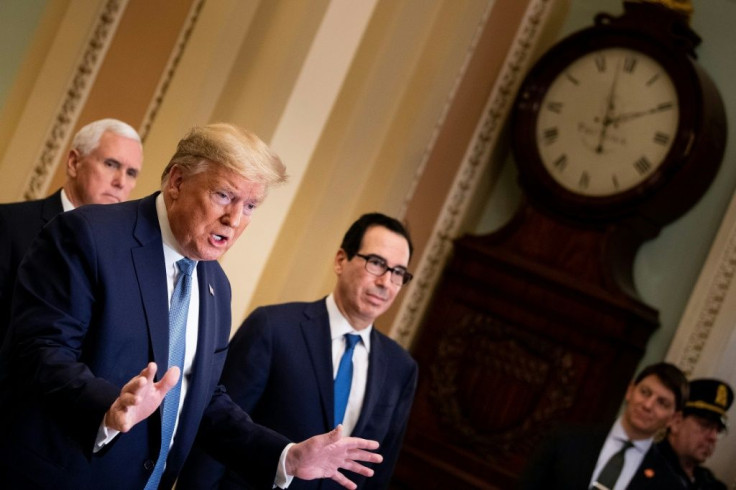Will There Be Another Round Of Economic Stimulus Checks? June Jobs Report Probably The Deciding Factor

KEY POINTS
- May's unemployment showed a surprise surge in hiring, but coronavirus cases have recently surged across the country
- Republicans have expressed reluctance to approve further economic stimulus
- No consideration will be given to further action until Congress returns from its Fourth of July recess
Whether Congress passes another coronavirus stimulus package likely will depend on the June unemployment report, due to be released next Thursday, despite the number of Americans currently collecting unemployment benefits.
May’s report showed a surprise surge in hiring with 2.5 million jobs added, to bring the official jobless rate down to 13.3%. A steady increase in hiring likely would remove urgency behind any action by Senate Republicans, who have expressed reluctance to pour more money into the economy.
“They don’t see the market crashing, they see a better-than-expected jobs report last month, and so their focus is very much targeted [around a] back-to-work narrative,” Beacon Policy Advisors senior research analyst Ben Koltun told The Hill.
“If there’s a bad jobs report — and when you see more people out of work than last month — then there may be an impetus by more Republicans in the conference to provide broader support and more stimulus spending than they’re talking about right now.”
Unemployment expert Andrew Stettner, senior fellow at The Century Foundation, told International Business Times now is not the time to pull back on economic aid.
“Altogether, 32.7 million workers are currently claiming unemployment benefits, including 18.3 million on state benefits and 11 million on pandemic unemployment assistance. … These claims represent 20.7 percent of the workforce,” he said in an email.
Some 1.48 million Americans filed initial unemployment claims last week – the 14th consecutive week in which claims exceeded 1 million. The Bureau of Labor Statistics put the unemployment rate for the week ending June 6 at 13.4% -- but that was before coronavirus cases began surging again, setting a record for diagnosed cases Wednesday. The surge in Texas prompted Gov. Greg Abbott on Thursday to announce a pause in efforts to open the state.
Talks on a new round of stimulus is expected to begin when lawmakers return from their Fourth of July recess.
Chief White House economic adviser Larry Kudlow said instead of stimulus, we should be pivoting to economic growth incentives.
Kudlow said the U.S. is going to have to learn to live with the fact that the coronavirus will be around for awhile.
“We’re going to have hotspots, no question. … We just have to live with that,” he said.
Larry Kudlow: "We're going to have hotspots... We just have to live with that." pic.twitter.com/5VpB8nD6l2
— The Hill (@thehill) June 25, 2020
Bain Capital’s Stephen Pagliuca told Bloomberg the economy will underperform until a vaccine or reliable treatment for COVID-19 is available. While Kudlow and President Trump keep predicting a V-shaped recovery, Pagliuca said a “series of Ws” is much more likely.
A Pew Research Center survey indicates 71% of Americans say additional stimulus is necessary -- 51% of Republicans and 87% of Democrats, with the proportion of Republicans down from April's level.Trump has said he supports another round of direct stimulus payments to taxpayers along with a $1 trillion infrastructure plan, but the proposals have gotten a cool reception from Senate Republicans.
House Democrats already have crafted a $3 trillion relief package that would bring to about $6 trillion the amount of emergency spending triggered by the pandemic, but Senate Majority Leader Mitch McConnell said it will not be considered in the upper chamber. Republicans want any future package to be narrowly tailored.
“An earlier shared sense of urgency among Democrats and Republicans in Congress has faded into an all too familiar pattern of partisan gridlock,” Bankrate.com senior economic analyst Mark Hamrick told IBTimes. “Hanging in the balance are millions of financially strapped Americans who sent them to Washington to represent their best interests.”
© Copyright IBTimes 2025. All rights reserved.




















